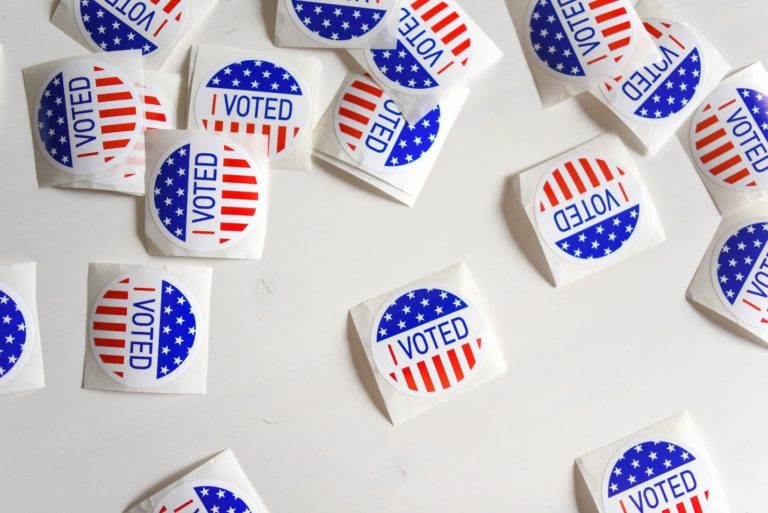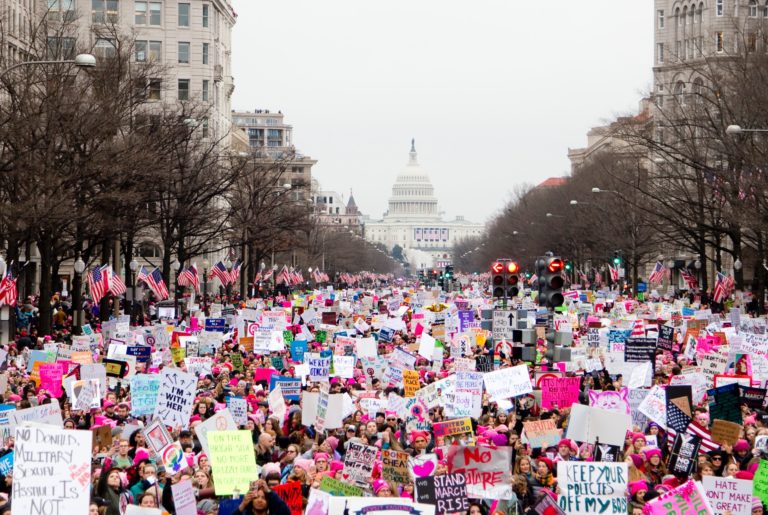2020 is already a record-breaking year for Republican women. More than 200 GOP women have…
Women Leaders are Rising to the Occasion in 2020

For nearly the entirety of the year so far, 2020 has been characterized by crisis. The Covid-19 pandemic and its economic repercussions have disrupted jobs, health, finances, and everyday life for countless Americans. Meanwhile, wildfires are raging along the West Coast, hurricanes season threatens the Southeast, incidents of police brutality repeatedly surface, and the anxiety-laden November presidential election looms.
In the midst of these overlapping crises, our political leaders have been scrutinized, at times criticized and at times celebrated, for their responsive actions. At the Barbara Lee Family Foundation, we know from our latest research that although “handling a crisis” may seem like a vague concept, voters have a clear idea about what they want from leaders in these difficult times. And we’re seeing many women across the country exemplify exactly the kind of strong leadership constituents hope to have in challenging times:
Prioritize communication with those impacted by crises
San Francisco Mayor London Breed took directly to social media to share real-time updates about nearby wildfires and related air quality in the Bay Area, making communication the front-and-center facet of her response, just as our research shows voters want leaders to do. In New Orleans, Mayor LaToya Cantrell offered a speech of hope and resilience to residents in her city in the face of a hurricane threat, saying “We are all well-versed in the unwavering focus, the hope, and the strength it takes to rebuild from what can seem like disaster,” she said. “I’m here to deliver a message of hope and point the way forward to our future beyond this pandemic.”
Show empathy, and the ability to listen—two specific communication methods proven to resonate with voters
Our research shows that voters want to know their leaders are listening (to them and to experts), and that leaders are approaching communication as a two-way street. Mayor Breed, for example, emphasized the need to listen to experts in her messages about California wildfires. She also made sure to display empathy in her video messages to San Franciscans, acknowledging the fear they may be feeling. And in Oregon, Governor Kate Brown empathized with Oregonians struggling to weather the Covid-19 pandemic in April, saying, “This is really, really hard for our families.”
Demonstrate a 360-degree view of the crisis
We know that voters want leaders who can develop and execute plans to deal with a crisis—showing they are thinking about what needs to happen before, during, and after. For example, Senator Lisa Murkowski of Alaska recognized the need to support children and youth at-risk of or experiencing homelessness during the Covid-19 crisis, and championed on a bipartisan bill to do so. Massachusetts Congresswoman Ayanna Pressley showed her deep understanding of the crisis of systemic racism by introducing a bill, the Anti-Racism in Public Health Act, to formally link racism to a public health threat.
Early in the Covid-19 crisis, Barbara Lee, president and founder of the Barbara Lee Family Foundation, wrote “This crisis is reshaping our society, our economy and our lives at warp speed. Let’s make sure it also reshapes our notion of what [..] leadership looks like.” As we head into an uncertain Fall in this difficult year, it’s important to acknowledge the women who have been leading the way.
To learn more about our crisis research and how women leaders can demonstrate their ability to handle a crisis, join the Barbara Lee Family Foundation’s webinar tomorrow at 1 pm EST.






